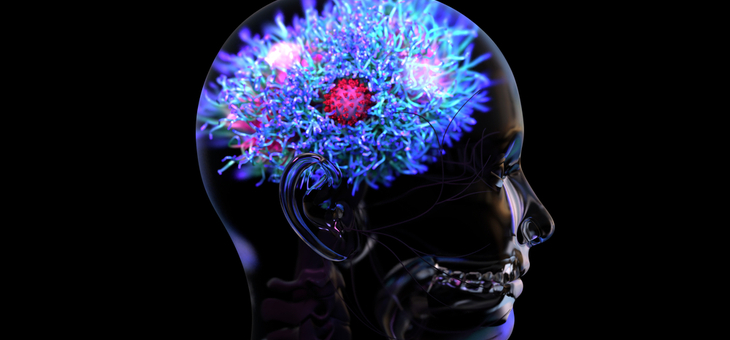They’re the deadly double and now a panel of global experts is urging the World Health Organization (WHO) to “urgently fast-track research on the potential impact of COVID-19 on increasing dementia rates”.
The Alzheimer’s Disease International (ADI), a group representing more than 100 Alzheimer’s and dementia associations globally, believes the world is unprepared for an impending wave of dementia boosted by the long-term effects of COVID infection.
The ADI’s medical and scientific advisory panel, made up of global experts on dementia, has set up a working group to study the link between COVID and dementia on the basis that the pandemic will cause a significant rise in the number of dementia patients in the long term.
The group says research shows COVID infections can increase a person’s likelihood of developing dementia and cause dementia symptoms to show up earlier than normal.
Read: Possible symptoms of long COVID
The research is the latest in a series of findings about what has been termed ‘long COVID’.
Dr Janet Diaz, WHO’s emergencies program head of clinical care, says the most common long COVID symptoms include shortness of breath, cognitive dysfunction and fatigue, but more than 200 symptoms have been reported in patients and they persist for up to nine months. “But as you know, we’re still about one year-and-a-half into the pandemic,” she says. “There’s still more studies that need to be done to follow patients who develop post COVID-19 condition or long COVID and to see when their symptoms we hope will resolve.”
The ADI says dementia rates worldwide may drop temporarily as a result of the high number of COVID deaths of people with dementia, with between 25 and 45 per cent of all COVID deaths estimated to be of those with dementia.
But over the longer term, the number of people with dementia “could rise significantly due to the neurological impact of COVID-19”, it says.
Read: Two new drugs could turn the COVID tide
Dr Alireza Atri, a cognitive neurologist and chair of the ADI’s advisory panel, says he’s “particularly concerned” about the effects of long COVID.
He says COVID can damage and clot micro-vessels in the brain, hurt the body’s immunity and cause inflammation. That can give “easier access to things that can harm your brain” and cause symptoms of neurological disorders – such as dementia – to show up earlier, he says.
Dr Atri told CTVNews that he first started to notice the link last year when several patients in their 50s quickly lost cognitive functions.
“All had been ill with COVID – mostly with mild illness, though one had been in the hospital for four days – a few months prior to the steep decline in their cognitive functions,” he said. “None of the patients or their family members had thought to link COVID with their mental decline.”
A June survey of 1000 Canadians who had tested positive for COVID found that more than 80 per cent had cognitive symptoms for at least three months, while almost half said their symptoms had lasted 11 months or longer.
Other studies have found that those hospitalised with COVID experienced neurological symptoms, with one study across 13 countries finding that 82 per cent reported neurological issues.
Even before COVID-19, dementia cases were estimated to rise from 55 million to 78 million by 2030 and costs to hit $2.8 trillion annually.
Read: Is COVID a ‘long-term epidemic’?
ADI chief executive Paola Barbarino says: “Many dementia experts around the globe are seriously concerned by the link between dementia and the neurological symptoms of COVID-19.”
She says the WHO, governments and research institutions across the globe must prioritise and commit more funding to research to avoid being overwhelmed by the oncoming dementia pandemic.
A greater understanding of the link between COVID and dementia can help authorities manage the increased prevalence of dementia, and identify symptoms as early as possible, Ms Barbarino says.
“We need people to be aware of the possible link between long-COVID and dementia, so they know to self-monitor for symptoms and catch it in its tracks.”
Have you experienced ‘long COVID’ or know someone who has? Is there a lot more we need to know about the condition? Why not share your thoughts in the comments section below?
If you enjoy our content, don’t keep it to yourself. Share our free eNews with your friends and encourage them to sign up.

